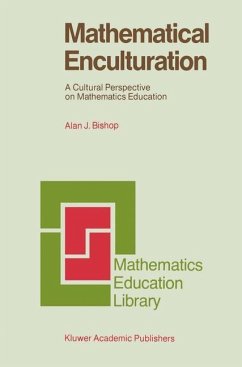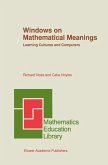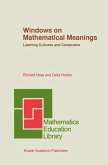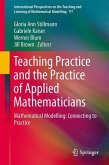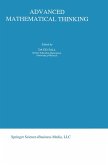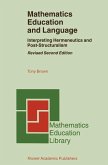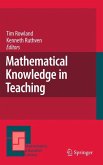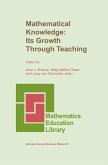Mathematics is in the unenviable position of being simultaneously one of the most important school subjects for today's children to study and one of the least well understood. Its reputation is awe-inspiring. Everybody knows how important it is and everybody knows that they have to study it. But few people feel comfortable with it; so much so that it is socially quite acceptable in many countries to confess ignorance about it, to brag about one's incompe tence at doing it, and even to claim that one is mathophobic! So are teachers around the world being apparently legal sadists by inflicting mental pain on their charges? Or is it that their pupils are all masochists, enjoying the thrill of self-inflicted mental torture? More seriously, do we really know what the reasons are for the mathematical activity which goes on in schools? Do we really have confidence in our criteria for judging what's important and what isn't? Do we really know what we should be doing? These basic questions become even more important when considered in the context of two growing problem areas. The first is a concern felt in many countries about the direction which mathematics education should take in the face of the increasing presence of computers and calculator-related technol ogy in society.
Hinweis: Dieser Artikel kann nur an eine deutsche Lieferadresse ausgeliefert werden.
Hinweis: Dieser Artikel kann nur an eine deutsche Lieferadresse ausgeliefert werden.
'Taking a refreshing noneurocentric position which refutes any suggestion that `West is best' as regards the development of mathematical thinking, Bishop sees mathematical development as being a function of the needs of whatever society in which it arises.' -- Tony Brown (Manchester Polytechnic), in Mathematics Teaching
'This book is an informed, extremely rational and objective account of some aspects of enculturation and educational activity in the field of mathematics. I would recommend the book to all interested in mathematics education and curriculum design.' -- Kathryn Crawford (The University of Sydney), in Educational Studies in Mathematics
'What is unique about Bishop's account is his attempt to specify and describe a universal set of activities that have supported and shaped the development of mathematics throughout the world.' -- J. Stigler, in Journal for Research in Mathematics Education
'This book is an informed, extremely rational and objective account of some aspects of enculturation and educational activity in the field of mathematics. I would recommend the book to all interested in mathematics education and curriculum design.' -- Kathryn Crawford (The University of Sydney), in Educational Studies in Mathematics
'What is unique about Bishop's account is his attempt to specify and describe a universal set of activities that have supported and shaped the development of mathematics throughout the world.' -- J. Stigler, in Journal for Research in Mathematics Education
`Taking a refreshing noneurocentric position which refutes any suggestion that `West is best' as regards the development of mathematical thinking, Bishop sees mathematical development as being a function of the needs of whatever society in which it arises.'
Tony Brown (Manchester Polytechnic), in Mathematics Teaching
`This book is an informed, extremely rational and objective account of some aspects of enculturation and educational activity in the field of mathematics. I would recommend the book to all interested in mathematics education and curriculum design.'
Kathryn Crawford (The University of Sydney), in Educational Studies in Mathematics
`What is unique about Bishop's account is his attempt to specify and describe a universal set of activities that have supported and shaped the development of mathematics throughout the world.'
J. Stigler, in Journal for Research in Mathematics Education
Tony Brown (Manchester Polytechnic), in Mathematics Teaching
`This book is an informed, extremely rational and objective account of some aspects of enculturation and educational activity in the field of mathematics. I would recommend the book to all interested in mathematics education and curriculum design.'
Kathryn Crawford (The University of Sydney), in Educational Studies in Mathematics
`What is unique about Bishop's account is his attempt to specify and describe a universal set of activities that have supported and shaped the development of mathematics throughout the world.'
J. Stigler, in Journal for Research in Mathematics Education

